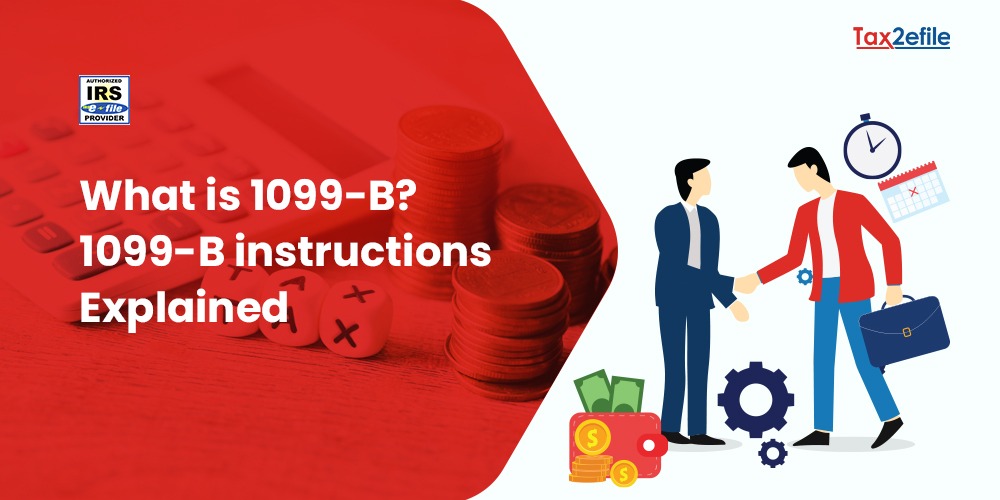- July 28, 2023

Business Tax Tips for United States Truck Owners – Comprehensive blog by Tax2efile
The successful ideal business in the US is maximizing profits and minimizing tax liabilities. Paying more taxes is a crucial thing for business owners, especially in the trucking industry. The truck industry is highly regulated and understanding of tax laws is complex for truck owners. In this article, we are going to share the five essential business tax tips for truck owners to minimize tax liabilities. We hope this article will help you to optimize your business profits and guide you to keep earning more money.
Table of Contents
Understanding Business Tax for US Truck Owners:
As a truck owner, understanding state and federal tax obligations is important to drive your truck on the highway lane smoothly. Some common types of taxes are below,
Income Tax: If you running your own trucking business, then you have to file income tax returns for your business. There are different types of business tax reporting is there, if your business falls into sole proprietorship, partnership, LLC, or S Corporation each has different reporting requirements.
Federal Highway Tax: Filing federal highway tax applies to all truck owners or operators. The vehicle’s gross weight is 55,000 or more pounds and if it was used in public highways, the truck owner must file Tax Form 2290. The federal government uses this tax for the maintenance of highways.
State Taxes: This tax type is excluded for some states. If your business operates in IRS-listed states you have to file state-level taxes such as income tax, sales tax, and franchise tax. It is mandatory to understand the state requirements before filing.
Fuel Taxes: The fuel tax applies to the federal government and most states. Depending on the state and your fuel consumption you are required to file fuel taxes. In some cases, you can receive tax credits or refunds.
Employment Taxes: You, as the employer, are allowed to withhold federal and state taxes from your employees’ wages when operating and maintaining your business administration.
Importance of Keeping Accurate Records:
Record maintenance is one of the most crucial jobs in the trucking business. Businesses could have done numerous expenses and transactions for commercial purposes. Maintaining those records is a challenging task for truck owners. Most importantly, keeping the mileage log records is an important activity. Those logs included information about trips, starting dates, locations, total number of miles driven, delivery information, and other business-related information. While filing your tax return, mentioning these details will give advantages for deducting taxes.
Deductible Expenses for Truck Owners: Business Tax Tips
As a truck owner, you must be aware about there is a wide range of deductible expenses that help you to minimize tax liability. Maintaining proper records and documenting them is the key strategy to reduce your taxes. If you are a long-haul truck driver, you can potentially save your deductible expenses in fuel costs. Since you are a long-distance traveler you are required to use fuel stations frequently, maintaining the fuel bills and records you can deduct this expense from your tax return. Additionally, you can deduct the expenses that include repair and maintenance, permissions, tolls, licenses, meals, lodging, and parking. These expenses also you can fill in your tax return form.
Maximizing Tax Deductions for Truck Maintenance and Repairs:
Being a truck owner, maintenance and repair is your regular activity. Properly maintaining the expense of these documents can benefit from tax deductions. To maximize your deductions for truck maintenance and repairs, it’s crucial to keep detailed records of all related expenses. This includes receipts for parts and labor, as well as any other documentation that supports the nature and purpose of the expense. By accurately tracking these expenses, you can claim them as business deductions and reduce your taxable income.
Taking Advantage of the Section 179 Deduction for Truck Purchases:
Section 179 is used to deduct the purchasing value of qualified trucks under certain conditions.
When you are purchasing a new or used vehicle, be aware of Section 179. The Section 179 deduction is particularly beneficial for truck owners, as it enables you to deduct a significant portion of the purchase price in the year you put the truck into service. This can provide substantial tax savings and help offset the cost of acquiring new equipment for your business.
The truck must be used for business purposes more than 50% of the time in order to qualify for the Section 179 deduction. Additionally, there are limits on the total amount you can deduct each year.
Consulting a Tax Professional for Truck Owners:
Tax2efile is an IRS-authorized online E-Filing application that offers a wide range of Form filing options. Our team of experts specializes in giving comprehensive solutions for truck owners and solving issues during tax season. We give a personalized approach to every customer to stay ahead of others. Our user-friendly platform simplifies your IRS Form 2290 filing process, whether you are filing a single form or bulk filing.
By following, these tips and strategies you can minimize your tax liabilities and optimize your business profit and growth.


